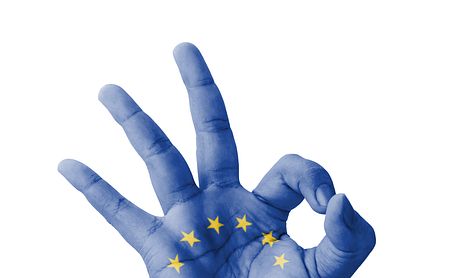EUnetHTA, Europe’s health technology assessment network, is seeking input from children and adolescents, ages 18 and younger, with early cerebral adrenoleukodystrophy (CALD), for a new Joint Assessment on a medicinal product for the treatment of CALD.
Participants should have CALD with an ABCD1 genetic mutation, and without a human leukocyte antigen (HLA)-matched sibling as a possible donor of hematopoietic stem cells. Input can be submitted on this link.
Because CALD is a rare disease affecting children, parents and caregivers of eligible patients also are invited to have input, according to a EUnetHTA press release. Parents and caregivers should contact [email protected] by Dec. 15.
The goal is to conduct a Joint Assessment of a potential new medicine for treating the neurological disorder. EUnetHTA also is seeking European and national patient organizations to provide feedback on its new assessment/questionnaire and to gather input from their members. The Patient Input Template is available here in the official EU languages, except for Irish Gaelic.
Adrenoleukodystrophy (ALD) is a rare brain disorder affecting an estimated 1 in 15,500 males (females are rarely affected). CALD is a type of ALD and stem cell therapy is a key tool for its treatment.
Stem cell therapy is done by transplanting hematopoietic stem cells (HSCs) from a donor into a patient. For this to work, the patient’s immune system must be suppressed, to keep it from attacking the donor cells. HSCs taken from siblings often carry the smallest chance of triggering an immune response, as they often share compatible HLAs.
When an HLA-matched sibling is not available, other therapeutic strategies are needed.
EUnetHTA is a network of health technology assessment (HTA) bodies, ministries of health, and research institutions, that aims to reduce overlapping HTA activities throughout Europe by coordinating the efforts of various member states.
The organization values patient and caregiver involvement and regularly seeks to include them in its assessments. According to EUnetHTA, these groups have intimate knowledge of their own conditions and provide unique perspectives regarding potential advantages and disadvantages of emerging treatments.
All responses to EUnetHTA questionnaires will be kept anonymous, although participating organizations will be mentioned in the project plan and possibly in the published report. The report also will document how EUnetHTA considered patient information in developing the scope of its Joint Assessment.
In the interest of transparency, EUnetHTA will include key messages submitted by patients — verbatim — in the report’s appendices, all of which will be made publicly available.
Once published, the report will be available here.


